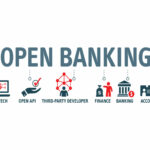Community banks are the mainstay of the “American Dream.” They are as traditional as “Apple Pie,” familiar, familial, folksy, punctuating small towns and communities, reliant on these relationships. Community banks are invested in these “communities,” their deposits derived from these generational customers. They base their lending criterion on their localized knowledge instead of the traditional underwriting principles.
Whereas commercial banks make their decisions on statistical models and credit criteria, community banks rely upon their relationships between the borrower and the bank, the community, and the local economy. This connection places community banks in a tangible position to oversee their business transactions more purposefully than their commercial counterparts, allowing their customer to have a sense of belonging. It is the antithesis of retail banking’s globalization. They have lost personal connections and social ties; instead, they have a fragmented identity for an impersonal profit not reinvested within their community. Instead, profit flows into the avarice of indifferent shareholders, where greed is good, and the community is a members-only country club.
The localization of the community bank allows the unbanked to become banked. Whereas a commercial bank is about the black-and-white of regulations, community banks are opaque in their judgment, prepared to take a punt on a client due to a collective commitment. The shared history is the critical component of community connectivity that community banks harness, crucial in this age of automation and indifference.
Community banks value the individual, seeing them as an investment, not a risk. They assert legitimacy within their community devoid of politics and regulations. Community banks maintain legitimacy within their autonomous communities, devoid of politics and rules, without ignoring that community banks are not regulated. Instead, it infers that “community” can circumvent commercialized globalization in favor of the eccentric and the individual. They have the opportunity to embrace and encourage the quirks of small-town America that dominate those that are unbanked. Here is the most significant opportunity for community banking today. They target those on reservations or at the border, documenting the undocumented by letting them bank, and giving them legitimacy. In contrast, otherwise, they would continue disengaged and disenfranchised, giving them the grace to live the “American Dream.” Youtap has the technology that provides an opportunity for the unbanked to bank. Community banks successfully utilize their products to ensure that the unbanked become banked. Because of their inimitability, community banks continue to impact and influence their communities. You can bank on that.

